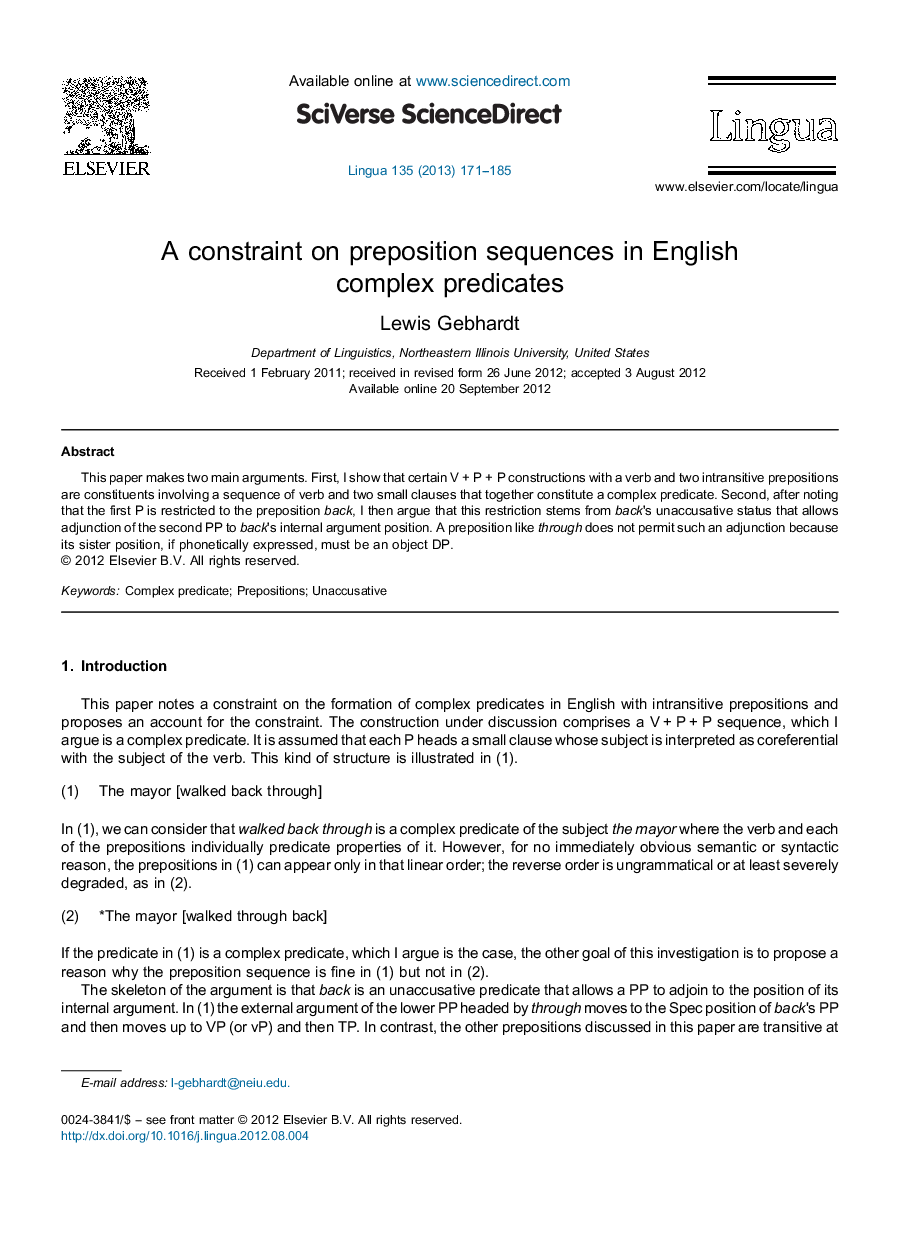| Article ID | Journal | Published Year | Pages | File Type |
|---|---|---|---|---|
| 935694 | Lingua | 2013 | 15 Pages |
This paper makes two main arguments. First, I show that certain V + P + P constructions with a verb and two intransitive prepositions are constituents involving a sequence of verb and two small clauses that together constitute a complex predicate. Second, after noting that the first P is restricted to the preposition back, I then argue that this restriction stems from back's unaccusative status that allows adjunction of the second PP to back's internal argument position. A preposition like through does not permit such an adjunction because its sister position, if phonetically expressed, must be an object DP.
► The paper argues that certain V + P + P sequences in English can be analyzed as complex predicates. ► When two prepositions appear in such a sequence the first must be back. ► This constraint follows from back being unaccusative.
